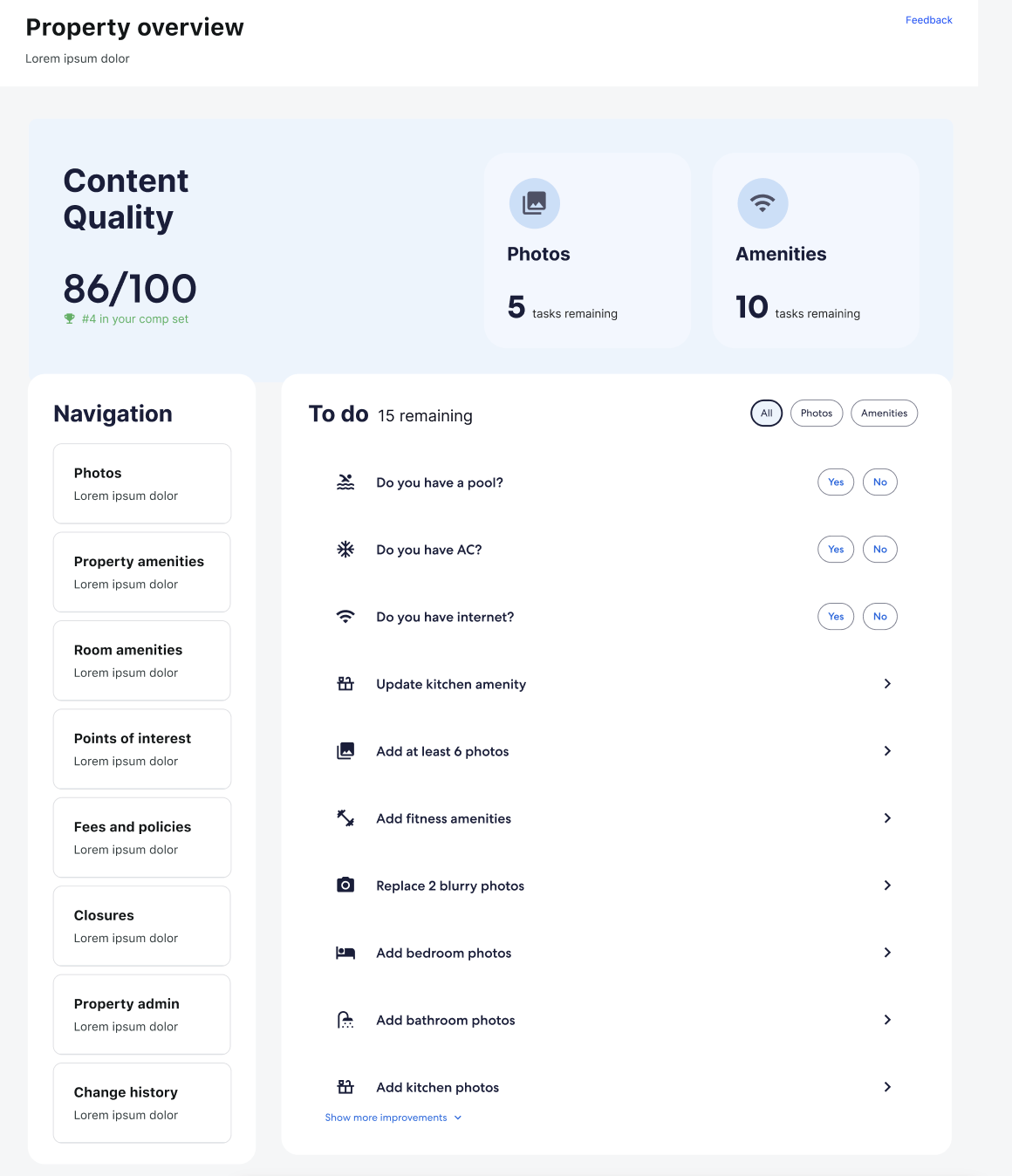The final product
Expedia Group weighs partners’ property profiles against the following criteria to develop a content quality score:
Accuracy
Completeness
Appeal
Relevancy
To complete this work, my team and I completed the following:
High-level product discovery
Hierarchy, voice and tone, and flow explorations
UX research study with real partners
Iteration and development collaboration
Why it works
The Strategy Is Task-Driven
Based on earlier research, the four quadrants of content quality were found to be confusing for partners. The product ask was to find a way to clearly explain these quadrants. My task-based content strategy addressed this by:
Refocusing on actionable steps: Offering a concise explanation of the score and guiding users toward specific actions to improve it.
This approach ensures clarity by breaking down complex information into manageable tasks, helping partners easily understand the content and take effective action.
Content deep dive
My content strategy and writing focuses on the following principles:
Action-oriented: Rephrase the four quadrants with direction-based titles (e.g., "Attract Travelers" and "Set Expectations").
Lead with tasks: Structure the hierarchy to prioritize actionable suggestions, allowing users to treat the page as a checklist for content improvement.
Grouping: Group similar tasks together (e.g., photos) to avoid unnecessary back-and-forth redirection.
Proof points: Provide clear explanations for each suggestion, backed by data or value propositions.
What users thought
“It’s logically formatted and well set out. It’s easy to navigate through. It looks like it’s pretty intuitive.”
“It’s giving you a greater view of each topic - and that’s a good thing.”
“I like that [the score] is clearly presented. I also like that it calls out the number in the competitive set. I think that’s important, particularly for hotels.”
See for yourself!
This prototype is still in development. Once live, I’m interested to review live user data and measure KPIs.

